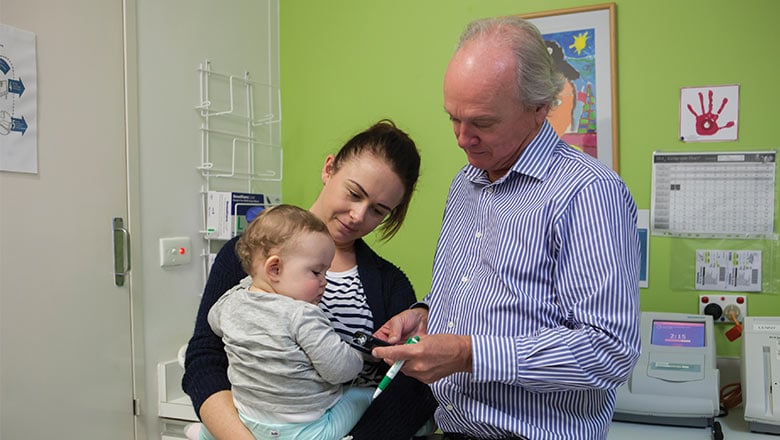Search

When Jodie and Brad Scott welcomed their fourth child Heath into the world, they were prepared for the many sleepless nights that come with caring for newborns.

Diabetes research got a huge boost when the WA Children’s Diabetes Research and Education Centre for Research Excellence opened late last year.

Launch of the WA Children's Diabetes Research and Education Centre for Research Excellence (CRE) on the eve of World Diabetes Day.
New research from Perth's Telethon Institute for Child Health Research has revealed an unexpected pattern in the rate and incidence of type 1 diabetes
A lifelong auto-immune condition that can affect anyone, but is most commonly diagnosed in childhood.
Children with early-stage (pre-symptomatic) type 1 diabetes are currently identified primarily via research-based screening programmes in Australia. Once identified, families live with the knowledge that their child has an increased chance of developing symptomatic, lifelong, insulin-requiring type 1 diabetes but have no specific clinical pathway available to them in Western Australia for accessing tailored support or education. This project aimed to co-design a new clinical pathway to address this unmet need.
Islet autoantibodies herald early type 1 diabetes. However, less is known of the evolution of autoantibodies to the islet autoantigen ZnT8. Our primary aim was to characterise the development of islet autoantibodies in a pregnancy-birth at-risk cohort and to provide new knowledge about ZnT8A.
Adolescence is a period of rapid transformation when meeting targets for optimal diabetes care is often challenging due to competing life demands. For more than two decades a diabetes transition clinic in Sydney, Australia, has sustained positive outcomes and demonstrated aspects of resilience in the care of individuals living with type 1 diabetes (T1D) who have transitioned from paediatric to adult care. Many studies have focused on resilience in acute care setting showever, studies that examine the factors that support resilience in settings that care for individuals with long-term, chronic conditions such as T1D are lacking.
Children and young people with type 1 diabetes (T1D) experience high rates of mental ill health and stress due to the emotional and cognitive energy required to manage their condition. Our team has codesigned Wellbeing T1D, a brief trauma-informed online intervention for adolescents living with T1D. This 5-week intervention will teach skills to promote problem solving, improve emotional regulation and promote helpful thinking and coping.
To explore trends in the receipt of commonly prescribed medications (beyond insulin) in people with type 1 diabetes in Australia, including polypharmacy, and to investigate socioeconomic disparities across these trends.
